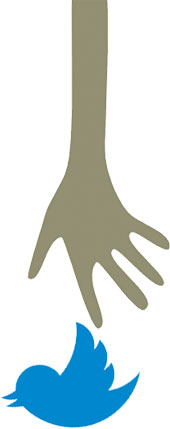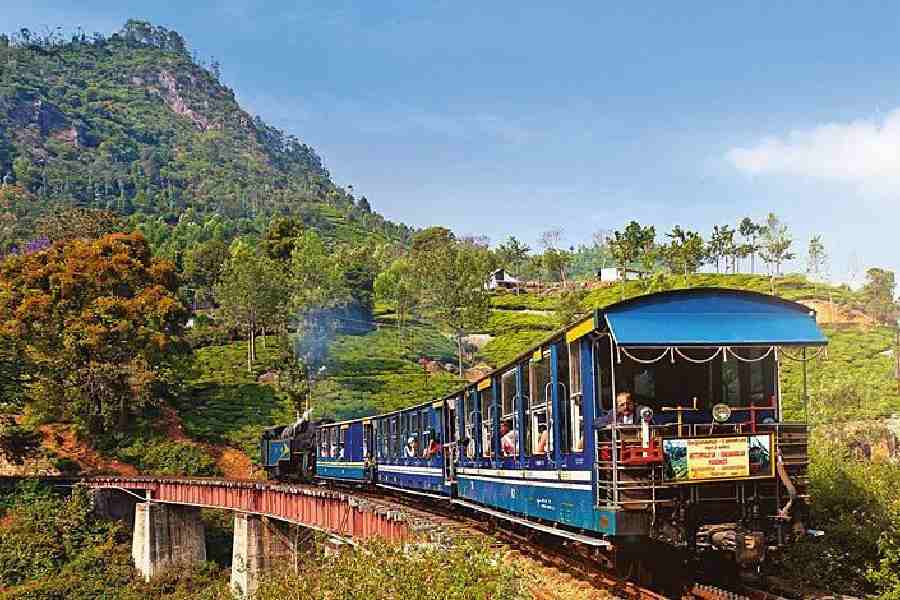 |
When Krishna Byre Gowda is out campaigning in his constituency, his wife is doing her bit to influence voters inside an office. While the Congress candidate seeking to retain the Byatarayanapura constituency in Bangalore in the May 5 Karnataka Assembly election is addressing rallies, his US-educated wife Meenakshi Byre Gowda is working on the Internet. And if he is on his feet all day, she is using her finger tips — to spread the message through Twitter, Facebook and Gowda’s website.
“His constituency is part urban and part rural. So we are using both traditional and the very latest methods to canvass,” Meenakshi says.
She leads a small team of volunteers in the Sahakara Nagar office of the Congress party. Last week, it took only a few minutes for the team to strike back at Gowda’s opponents who accused him of neglecting his constituency. A list of civil works carried out at a cost of around Rs 190 crore in the last five years was put on his website.
A few kilometres away, at the Bharatiya Janata Party (BJP) headquarters in Malleshwaram, 15 tech-savvy volunteers are celebrating the success of the trending of #PappuInKar on the micro blogging site Twitter. The reference is to Congress leader Rahul Gandhi.
“We listed the failures of Rahul Gandhi as a leader and his listless speeches during the campaign in Karnataka on our Twitter page. And somebody came up with #PappuInKar and we started promoting it. Within no time, it was trending,” crows Channamallikarjun B. Patil, a 37-year-old technology entrepreneur who is heading the state BJP’s IT Cell.
Campaigning for the Assembly elections is in full swing in Karnataka with leaders touring the state. But every party also has its backroom boys who are trying to influence the Internet-savvy voter.
Live tweeting of leaders’ speeches, instant upload of videos on YouTube and organising live chats and Google Hangouts are some of the activities that the parties’ IT wings are indulging. Gowda’s website, KrishnaByreGowda.in, for instance, carries links to YouTube, showcasing his activities and speeches.
Patil and his team work for more than 16 hours a day updating the state party’s website and Twitter and FB pages. “You can call us the Internet warriors. We are also in a way the eyes and ears of the party as we pick up anything that concerns us and is being discussed among netizens,” Patil says.
Bangalore, with its huge mass of techies, is just the right place for a cyber war. Even the Karnataka Janata Party (KJP), led by former chief minister B.S. Yeddyurappa, has joined in. “As an IT pioneer, Karnataka has millions of Internet users. We simply cannot ignore this segment,” says Sanjaya Gowdar, state convener, IT cell, KJP, which has its Twitter handle and Facebook pages, a website and a blog.
With as many as 70 urban constituencies, online canvassing is an important electoral tool in the state. Meenakshi Byre Gowda stresses that her team trawls the Internet looking for anything on Krishna. “We respond immediately if we think something needs a response. Sometimes he prefers to reply to people’s questions on Facebook himself,” she says. The candidate — known as Rahul Gandhi’s blue-eyed boy in the state — has around 2,200 likes on his FB page and 1,500 followers on Twitter.
Some candidates have also approached professional Internet marketing agencies for help with online canvassing, says Mahesh Murthy, founder and CEO, Pinstorm, a Mumbai-based online marketing and search engine marketing specialist.
Murthy has no doubt that social media can have a huge impact on youth votes. “In Bangalore city alone, there are about 31.7 lakh people of voting age on Facebook. Contrast this with a reported total of 59 lakh registered voters in the three Parliamentary constituencies: Bangalore Central, North and South,” he says.
Not surprisingly, even the relatively older candidates are looking at the Internet for votes. Veteran Congressman G. Parameshwara, president of the state party unit, has more than 15,000 followers.
“He is always curious about the online buzz and doesn’t mind jumping into the fray and engaging people,” party spokesperson Nivedith Alva says. A newspaper report on the popularity of Parameshwara’s Facebook page is prominently displayed on the profile of the Congressman fighting from Koratagere in Tumkur district.
Alva, who also looks at the online activity of the state unit, adds that around 10 volunteers update the activities of the Karnataka Pradesh Congress Committee across social media platforms. The Janata Dal Secular has also forayed into the cyber world, but is so far concentrating on its website, www.jds.ind.in.
Though only a small section of voters would be regular users of the Internet, politicians believe that it’s still a powerful medium. “The middle class is very vocal and hence we get to hear a lot about its opinion on social media. And every politician has to engage this section of society,” reasons B.K. Chandrashekar, a veteran Congressman and candidate from Bangalore’s Basavanagudi constituency.
Netizens see the increased activity of political parties in social media as an opportunity to question them. Krishna Prasad, a Bangalore-based Right to Information activist, says that most political parties respond to his queries on either Facebook or Twitter. “I am not sure if they will be as serious after the elections, but they are showing that they care for what you say, at least for now,” he holds.
Murthy believes that one should also take into account the Facebook youth’s ability to influence family and parental voting decisions. “Then you know that it may be one of the more significant influence factors in the elections,” he says. Indeed, if the Internet can lead to revolutions across the world, surely it can influence an election?
We like
Karnataka politicians active on Facebook
G. Parameshwara, Congress, KPCC president, over 15,000 likes
B.S. Yeddyurappa, KJP, former chief minister, over 11,000 likes
H.D. Kumaraswamy, JDS, former chief minister, 9,299 likes
Jagadish Shettar, BJP, chief minister, around 7,500
R. Ashoka, BJP, deputy chief minister, 6,487 likes
 |










